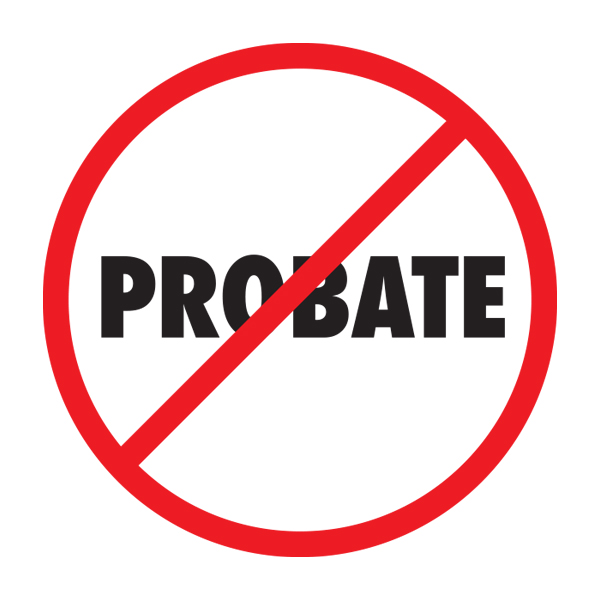In our post Overview of Basic Trusts and Their Functions, we mentioned that trusts are an important part of estate planning regardless of wealth or social/economic class. As time goes on, revocable living trusts are becoming an important, nearly essential, part of even a basic estate plan. One reason trusts are becoming an essential part of estate planning, are the benefits afforded to yourself and your beneficiaries by placing your house in a trust. This can be achieved as part of a more comprehensive estate plan, or as a standalone transaction.
While joint ownership and or life estate deeds, can provide a streamlined means for transferring property to the beneficiary of your choice, these may not be the best option for you or family, or provide certain tax benefits. Let’s take a look at the procedure to, and benefits of, placing your house in a trust.
Prior to putting your house in a trust, it is important and advised to check with your mortgage lender and insurance company to make sure there won’t be any issues with this transaction.
How to Put Your House in a Trust
- The first step is to have a trust drafted by a qualified estate planning attorney.
- Once the trust is drafted and executed, it is then ready to be funded. To fund a trust with a house, a deed will be drafted, executed, notarized, and recorded in the appropriate registry of deeds. The format of the deed would be from the current owners to the trustee of the trust – it is not deeded specifically TO the trust.
The Five Reasons to Put Your House in a Trust
1.) Avoid Probate:

Probate is the legal process that occurs after a person dies (the “decedent”) either with or without a will. If someone dies without a will, they are deemed to die “intestate.” Probate is the process by which the decedent’s will, if one exists, is validated and authenticated. Probate can be avoided by properly titling assets to remove them from your probate estate (which is different from your taxable estate), and by placing beneficiary designations on assets and property.
Assets placed in a trust are removed from one’s probate estate and therefore pass directly to the beneficiaries, avoiding the time and expense of probate. Since assets in a trust will avoid probate, the beneficiaries will receive the property much more quickly and efficiently than if the property were to pass through probate.
Although the filing and court process itself is the same as it would be for other assets, probate can be particularly cumbersome and create quite the headache for real estate transactions:
- First, your beneficiaries may not be able to sell the property right away.
- Depending on state law, the personal representative/executor may no longer have the ability to sell the property out of your estate, and the property will pass to your heirs.
- For example, in Massachusetts, a personal representative can no longer sell real estate pursuant to a power of sale in a will, or obtain a license to sell from a court, after 6 years from the date of their bond. Thus, this means the property passes to, and needs to be sold by, the heirs.
- If and when the property does pass to your heirs, the property will have to be sold by all of them. If the heirs live in different states (or even out of the country), or if they don’t agree on what to do, trying to coordinate to have them all sign a deed can be a difficult, costly, and time-consuming proposition.
- If any of your heirs have predeceased, their heirs will assume their place. Not only will they have to be on board and coordinated with to sign a deed, if no probate was done for your heir’s death, a probate matter will have to be opened for them otherwise this will create title issues if there are missing probates.
- Other title issues can occur if the probate was not properly administered or closed. These title issues can cause delays in selling the property, and could be very costly for a seller if they aren’t discovered until after an offer to purchase, or purchase and sales agreement, is signed.
Note that just because a trust has been funded with a house, other assets not included in the trust or otherwise removed from your probate estate, will still have to go through probate.
2.) Privacy:
Upon death and filing a probate matter, wills become public records as a part of the probate record. This means that anyone can walk into a Probate and Family Court clerk’s office, request a file, read through a will, and see any specific distributions that were made.
If more privacy is desired, trusts can do just that.

Generally, trusts do not become public records, and a schedule of beneficiaries does not need to be recorded in the Registry of Deeds. Even though pour-over wills become part of the public probate record, they contain less information about specific distributions, thus affording more privacy.
3.) Flexibility and Conditions on Inheritance:

Trusts provide a level of planning flexibility that other estate planning options don’t.
In a trust, conditions can be placed on when and how a beneficiary receives the property, while also benefiting from the privacy and other benefits trusts provide.
For example, for a younger beneficiary (not necessarily a minor) you could state that they will receive the property at a certain age, or if and when other conditions are met…so long as those conditions are legal.
Trusts also allow you a means of transferring the property prior to your death.
4.) Irrevocable Trust Creditor Protection and Estate Tax Planning:
We rarely recommend placing your home in an irrevocable trust because they cannot be amended or revoked by the grantor. A grantor of an irrevocable trust gives up ownership and control of the assets and property placed in the irrevocable trust. That said however, placing your house in an irrevocable trust can provide some benefits.

Since the assets in an irrevocable trust no longer belong to the grantor, these types of trusts can provide creditor protection (though be wary of fraudulent transfers). Likewise, if done within the five-year lookback period, placing your home into an irrevocable trust may also help with Medicaid/MassHealth eligibility for long-term/nursing home care. Further, placing your home into an irrevocable trust could help with reducing or eliminating federal and state estate taxes. (For information on the new changes to the Massachusetts estate tax, click here to read our comprehensive overview of the new law).
This loss of control could, however, be seen as a disadvantage. This is why a thorough review of an estate and discussion with a knowledgable estate planning attorney is advised to weigh the pros and cons of these decisions. Another potential disadvantage comes from a recent IRS revenue ruling regarding irrevocable trusts and the capital gains tax (see #5 below).
5.) Capital Gains Tax Benefits:

Assets placed into a revocable living trust* receive a step-up in basis for capital gains tax purposes when distributed to beneficiaries after the death of the grantor. If the house gains additional value after the death of the grantor, while possessed by the beneficiary, the beneficiary is responsible for that gain.
If you instead were to gift the property outright to a child or other individual, they will not receive this step-up in basis; their basis for capital gains tax purposes would be your original cost basis when you purchased the house. For inherited property, the beneficiary – whether a minor or adult – would receive a basis step-up to the date-of-death value. See 26 CFR 1.1014-2.
*For irrevocable trusts, the IRS has recently issued a revenue ruling stating that completed gifts to an irrevocable grantor trust will not receive a step-up in basis upon the death of the grantor
Trusts are one of many ways to transfer real estate. Whether through straight inheritance, gift, life estate deeds, or joint ownership, each option has pros and cons, and should be discussed with a qualified estate planning attorney. For questions about, or assistance with, placing your house in a trust, or for a more comprehensive review of your estate, schedule a free consultation to discuss your options today!
No information in this blog post is to be construed as, nor is intended to be, legal or tax advice. Consult with competent legal counsel and/or tax professionals prior to taking any action. Do not rely on any information contained in this blog post as the law changes from time-to-time and this blog post may not be updated to reflect those changes.
© Zuccaro Law, LLC. All Rights Reserved.






